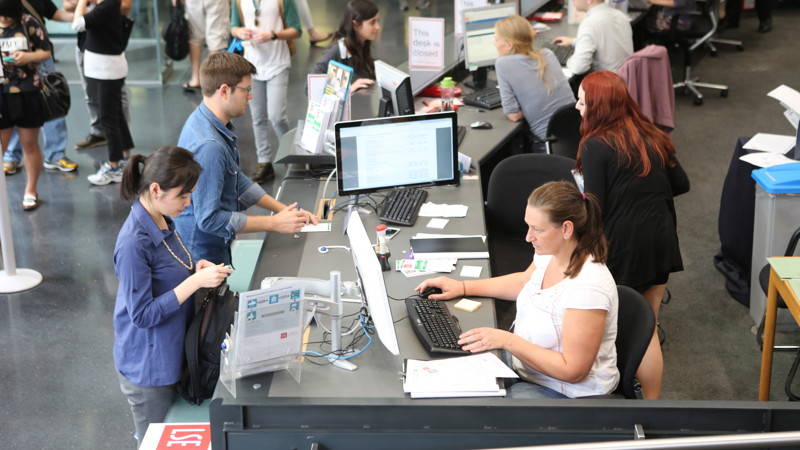A Warm welcome to LSE and to Higher Education! We are so glad that you're now part of it.

What is the Higher Education Sector and how does it work?
The Higher Education (HE) sector is a diverse' dynamic and globally evolving industry. The Higher Education Industry (HEI) includes educational institutions such as: Universities, Colleges, Professional schools and Institutes
These educational bodies are dedicated to offering formal degrees beyond high school and/or secondary school education. These degrees can be pursued, full-time or part-time and include:
- Undergraduate,
- Masters (MA, MSc, MTech, etc.)
- Executive Masters
- Research degrees (MPhil, MRes)
- Graduate diploma,
- PhD
To get more information about the types of degree programmes at LSE, have a look at our Types of Study Page.
Educational institutions that teach degrees are usually autonomous, self-governing institutions, responsible for appointing and employing their own staff and setting their own policies and procedures.

What kind of job roles do people work in at Higher Education?
The HEI Sector is supported by people performing a variety of functions across each Educational Institution.
If you're new to Higher Education, you would belong to one of the categories of staff listed below:
- Teaching/Academic staff: includes, Professors, Teachers, Lecturers.
- Research Staff: includes Researchers and Fellows
- Professional Services Staff: includes teams responsible for supporting the Student lifecycle as well as other members of staff and business continuity across the Educational Institution.
At LSE, our staff work across:

What's new with the UK Higher education sector?
According to a report by PWC in early 2024, the Higher Education sector in UK is longstanding and well-established- with approximately 285 higher education institutions across the UK, playing core roles in their local cities, towns and communities, including as employers, with the sector being one of the largest employers in the country.
The UK Higher Education sector is internationally recognised as being one of the best places to study in the world, there were over 2 million higher education students in the UK in 2020/21. Nearly 80% were undergraduates and over 80% study in England.
In recent years, the UK has been the second most popular global destination for international students, hosting 9% of all international students worldwide, due to a strong international brand, high quality research and attractive graduate routes.
HE Myth Busters: have you come across some of these?
As someone who is new to Higher Education, you might have some ideas about how HE works, and not all might be accurate. Here are a few common myths about the Higher Education sector:
Wrong! While Higher education does deem academic progress and research endeavours important, HEI is a great workplace to pursue careers that go beyond academic and research tracks. For instance, take a look at our LSE 2030 priorities! While we emphasise the delivery of quality education and research, we also believe in Developing LSE for Everyone.
As someone working in HE, you don’t necessarily have to be an academic member of staff or a researcher. You can be a project coordinator, an HR manager, career consultant, degree programme officer, estates coordinator, and much more!
Not at all! In HE, we have people working in and with service delivery teams (IT, Human Resources, Library, etc). People in HE also work across educational institutions, with alumni, private organisations, consultancy firms, governments, and so on.
As you can see, there's more to Higher Education than just teaching and studying!

5 Top tips if you're new to Higher Education
1. Carefully Consider your transition to HE: Higher education is a new and unique context, and you should make sure you take steps to be comfortable when beginning your new role here!
The best way to do so is to get working through the aspects of your Induction as early as you can! As a new starter, we can even pair you with a buddy to support and empower you in this transition!
2. Get familiar with the key mission principles of the organisation: The mission statement of Higher education institutions are unique in their own way, and different from that of organisations in other sectors. Higher Education institutions are dedicated to supporting global research endeavours and educational advancement!
At LSE we have our LSE 2030 priorities that tell you about LSE's commitments to Shaping the World. And of course, our School motto that rings true for students and members of our LSE Community: To understand the causes of things!
3. Look into the variety of career development opportunities: From an academic and research perspective, a career in HE offers support, flexibility and a variety of resources for professional development! that few other employers can offer to researchers.
If you're an academic joining LSE, have a look at the EDEN Centre for Education Enhancement for their plethora of career development opportunities for academics and researchers.
From a non-academic point of view, Higher Education offers a great variety of career opportunities and career development through training programmes, courses, secondments, mentoring and so much more!
If you're a non-academic member of staff, have a look at LSE's Organisational Learning offer and explore personal and professional upskilling opportunities you can avail of!
4. Avail yourself of the staff benefits you get as someone who works in the HE sector: Aside from the various career development opportunities mentioned above, the HE Sector offers a flexible work environment and a range of benefits for students and members of staff! Whether it's gym memberships, discounts for various services, generous holiday entitlements, or pension schemes- you can take a look at LSE's Staff benefits webpage for more information.
5. Network with the diverse community of individuals that are unique to this sector: The Higher Education sector is home to a variety of networks and staff groups that consist of like-minded individuals working collectively towards/sharing ideas on inclusivity, leadership, diversity, culture, or simply engaging in shared activities!
If you're new to LSE, do explore the various Staff Networks we have in place! They provide an engaging space for sharing ideas, socialising, networking, professional development and the continuous building of the LSE Community!